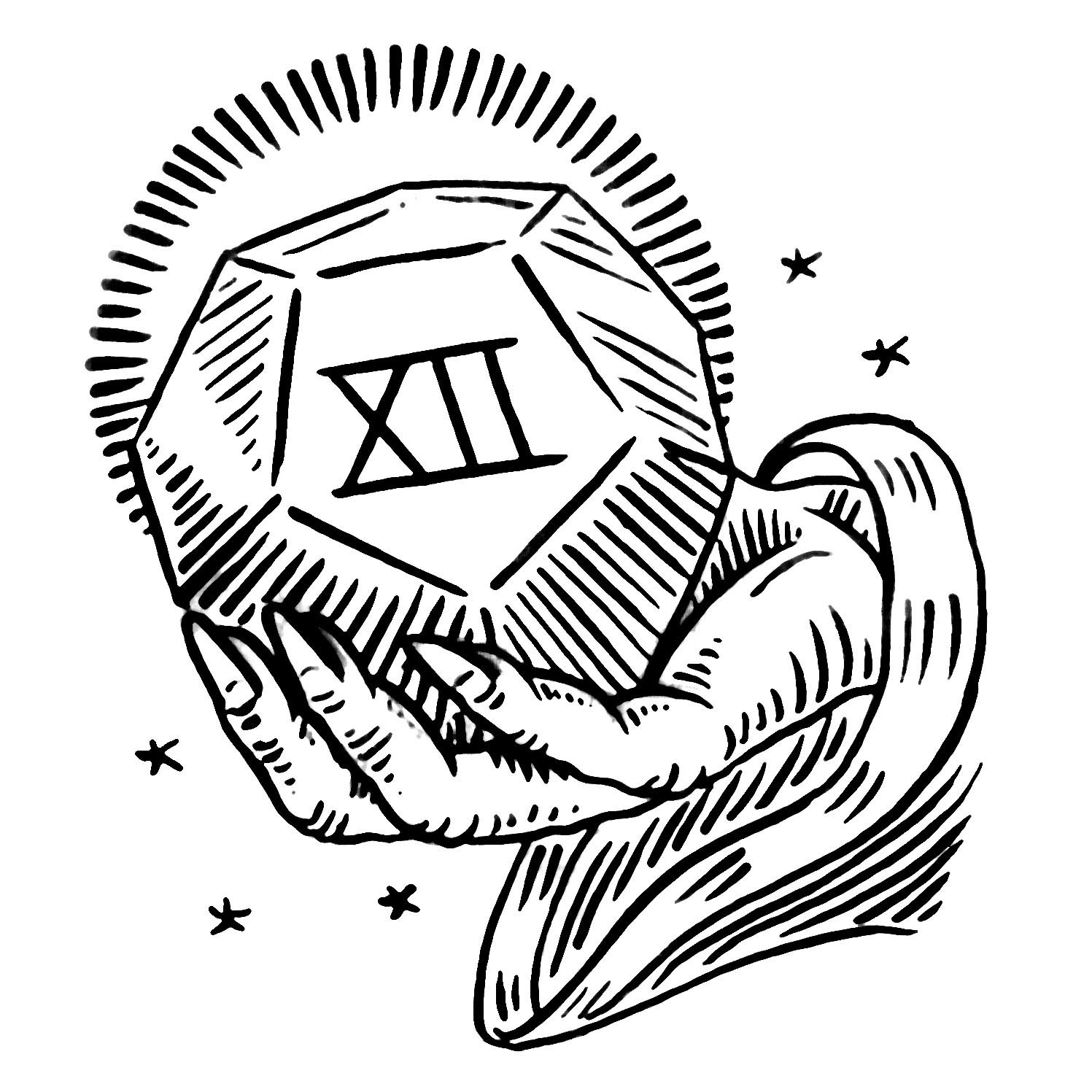Last week, a nerd fantasy of mine came true: I helped my best friend fill out a Dungeons & Dragons character sheet. That friend, Virginia, is an amazing person, but I never thought she would be interested in tabletop role-playing games. I was wrong and I shudder to think of all the potential gamers I’ve similarly dismissed. The shame. And then I thought, If tabletop RPGs are a dying industry, am I partly to blame?
The decline of tabletop RPG games has been a hot topic in the gaming community for a few years now, although questions about the genre’s impending demise likely stretch back to 1974, the year Dungeons & Dragons was released and subsequently gave birth to the RPG industry. People are constantly trying to predict what the future holds for the genre. And although I don’t think the industry is “dead” by any means, I can see why the point is raised. Profit margins on new material for these dice-and-manual games are relatively slim for large companies like Wizards of the Coast, which owns the rights to D&D. That’s the problem with games in which building a character and mapping out an adventure is the product of the players’ collective imagination and not (necessarily) their pocketbooks: How do you profit off your consumers’ imaginations? Answer that and be rich.
However, many hobbyists and smaller companies are still active in creating new material—you just have to look for it outside the traditional tabletop RPG titles. Most notable of these is Pathfinder, an RPG inspired by D&D and created by Redmond-based company Paizo.
There’s another danger to the future of tabletop RPGs besides the lack of new material—the lack of players. With so many other kinds of games to compete with, tabletop RPGs easily can be passed by. A simple book and some dice—where’s the fun there? Or it can look too complex—all the rule books, the character sheets, the stats. A potential gamer could easily walk past a game thinking there’d be no way he could understand, let alone enjoy, a tabletop RPG.
Luckily, if you are gaming-curious, you live in the right city. Seattle is home to some amazing groups that cater to new gamers. Both Card Kingdom in Ballard and Gamma Ray Games on Capitol Hill run different game nights, and are very receptive to anyone who wants to learn to play tabletop RPGs. Seattle is also home to a D&D meetup group that is welcoming to newcomers. But it can be scary to venture into a world you don’t know or understand. It’s a lot easier to try something if you’re invited by a current gamer, which brings us back to Virginia.
She and I have been friends since second grade. In my mind, she has always been the cool one (although she knows way more about Star Trek than I do). So I never thought she’d be into gaming. When I learned she’d recently bought a discounted D&D book, I was shocked that she wanted to learn to play. It turns out that one of our friends, Dan, explained D&D to her in a way I never had. He didn’t explain all the rules or talk about how complicated it is—nothing like that.
Nope, Dan was brilliant. He explained that in a tabletop RPG, you work as a collective to tell a story using your imagination. Well, Virginia loves stories and using her imagination, so of course that sounded cool. Thanks to Dan, last Friday I sat around a table on Beacon Hill with three non-gamers filling out character sheets so we could play together. As each of the players, all ladies, rolled one of their newly purchased dice, I was reassured.
All night my fellow travelers—we’re calling ourselves Dungeons and Dames—were rolling for stats and meticulously studying race and class types. Mind you, they were more concerned about the outfits of the classes than previous groups I’ve played with, but who cares? They were making their characters, and if they wanted to make sure they looked dapper, well, that is fine by me. Long live the tabletop RPG.
geeklyreport@seattleweekly.com




